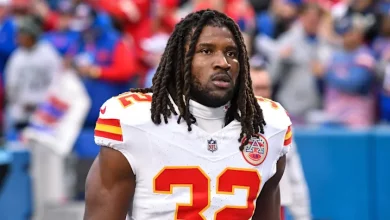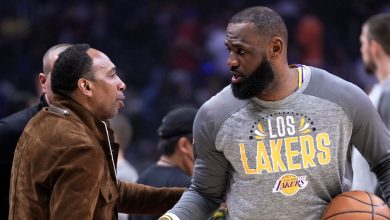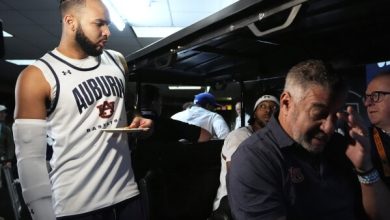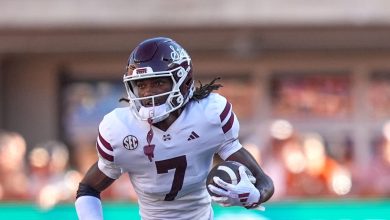The rivalry: Tar Heels vs. Blue Devils in the 263rd Hardwood Meeting
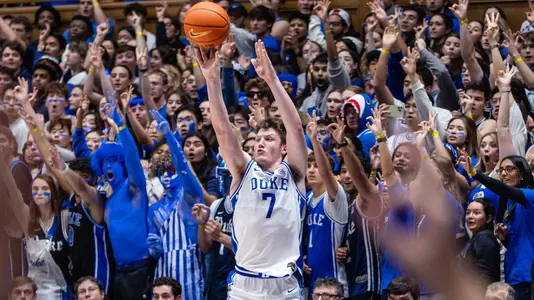
Few rivalries in the world of sports are as storied, heated, and passionately followed as the one between the North Carolina Tar Heels and the Duke Blue Devils. It’s a rivalry that transcends the confines of college basketball, igniting fierce debates and drawing attention from sports fans across the globe. Known for its intensity, high-stakes games, and historical significance, this rivalry has come to define not just the ACC but the very spirit of college basketball. As the two teams gear up for their 263rd meeting, fans and players alike brace themselves for yet another chapter in one of the sport’s most compelling narratives.
In the world of college basketball, there are rivalries that have defined eras. The Yankees vs. Red Sox rivalry in baseball, Michigan vs. Ohio State in college football, and Real Madrid vs. Barcelona in soccer are just a few examples. But when it comes to pure basketball rivalry, few can rival the intensity, tradition, and history of North Carolina vs. Duke. Their matchups are more than just basketball games; they are cultural events that have come to represent the best of what college basketball has to offer.
This rivalry, now in its 263rd meeting, has become a reflection of the very nature of college basketball. It’s a battle of blue bloods, a clash of two of the sport’s most successful programs, both of which boast rich histories, legendary coaches, and countless players who have gone on to have illustrious careers in the NBA. Each game carries more weight than just the final score; it is about pride, tradition, and the fierce desire to be known as the best in the state of North Carolina, and in some years, the best in the country.
The Origins of the Rivalry
The rivalry between North Carolina and Duke dates back to 1920, when the two schools first met on the basketball court. But it wasn’t until the 1960s that it began to truly take shape, when Dean Smith, the legendary North Carolina coach, helped elevate the Tar Heels into a national powerhouse. At the same time, Coach K, Mike Krzyzewski, took over the Blue Devils’ program in 1980 and transformed it into one of the most successful teams in the NCAA.
While the rivalry certainly predates the presence of these two legendary coaches, their contributions helped mold it into the epic showdown it has become. Coach K’s tenure at Duke has been marked by sustained excellence, with his program consistently competing for national championships, while Dean Smith’s influence at North Carolina established a legacy of success, including multiple NCAA championships and a commitment to developing basketball talent at the highest level.
The rivalry’s intensity is rooted in more than just the two teams’ success on the court—it is deeply entrenched in the culture of their respective fan bases. The Tar Heel faithful and the Blue Devil supporters both see their teams as the epitome of college basketball excellence, with each side holding an unwavering belief in their superiority. When these two schools clash, the entire state of North Carolina holds its breath, as the game often has significant implications for conference standings, NCAA tournament positioning, and, of course, bragging rights.
The Legacy of Coaches
The rivalry has been defined by two of the most iconic coaches in the history of college basketball: Dean Smith and Mike Krzyzewski. Each coach brought a distinct style of leadership and philosophy to their programs, yet both shared an unyielding commitment to excellence. Smith, a basketball innovator, introduced the “four corners” offense and was known for his emphasis on teamwork, discipline, and defense. Under his leadership, North Carolina became a breeding ground for basketball talent, producing future NBA stars like Michael Jordan, James Worthy, and Vince Carter.
Meanwhile, Coach K turned Duke into a national powerhouse. His teams were known for their gritty defense, disciplined play, and commitment to getting the most out of their players. Under Coach K’s stewardship, Duke claimed five NCAA championships, and he became synonymous with the Blue Devils’ identity. His tenure at Duke also saw him mold future NBA stars such as Grant Hill, Christian Laettner, and Zion Williamson, further cementing the program’s status as one of college basketball’s elite.
But beyond their tactical brilliance, both coaches shared a deep understanding of the psychological aspects of rivalry. Each game between Duke and North Carolina became a referendum on the success of their respective programs, and every win, every loss, carried immense weight not only for the players but also for the legacies of Smith and Krzyzewski.
In the case of the 263rd meeting between these two schools, the implications are significant for both programs, with both teams hoping to add another chapter to their illustrious histories. Coach K, who retired in 2022, may no longer be on the sidelines, but his influence is still felt in the way Duke approaches the rivalry. Similarly, North Carolina’s current coach, Hubert Davis, has stepped into the shoes of one of the greatest basketball minds of all time, with the weight of Tar Heel basketball legacy resting on his shoulders.
The Players Who Defined the Rivalry
While the coaches are often the focal point of discussion, the players who have graced the court in this rivalry have been just as instrumental in shaping its narrative. Over the years, both Duke and North Carolina have been home to some of the most legendary figures in basketball history, and these players have defined the rivalry in ways that words alone cannot fully encapsulate.
For North Carolina, players like Michael Jordan, James Worthy, Rasheed Wallace, and Tyler Hansbrough are woven into the very fabric of this rivalry. Michael Jordan’s famous game-winning shot against Georgetown in the 1982 National Championship was a defining moment in NCAA basketball, but his battles against Duke, particularly in the 1980s and 1990s, gave fans some of the most intense and dramatic games in history. Jordan’s competitive fire and his ability to perform in clutch moments made his matchups with Duke legendary, and every time the two teams met, fans were treated to a battle of epic proportions.
On the Duke side, players like Christian Laettner, Grant Hill, Zion Williamson, and Kyrie Irving have left their mark on the rivalry as well. Laettner’s buzzer-beater in the 1991 NCAA tournament remains one of the most iconic moments in college basketball history, and his presence on the court in this rivalry was felt deeply by both Duke and North Carolina fans. Grant Hill, who became a star in the NBA after his college career, was known for his ability to take over games, and his performances in Duke-North Carolina matchups were often the deciding factor in the outcome.
For the modern generation of college basketball fans, players like RJ Barrett, Cam Reddish, and Paolo Banchero for Duke, as well as Armando Bacot and Leaky Black for North Carolina, continue to carry the torch and write new chapters in this ongoing saga. Their personal battles, the way they elevate their teams, and their fierce desire to beat their rivals have continued the tradition of greatness that has been passed down through the years.
The Stakes of the 263rd Meeting
As the Tar Heels and Blue Devils prepare for the 263rd meeting of this legendary rivalry, the stakes could not be higher. The ACC (Atlantic Coast Conference) standings, NCAA tournament hopes, and state bragging rights are all on the line as these two blue bloods square off once again. North Carolina, coming off a strong season but still finding their rhythm, is looking to prove themselves as true contenders in the college basketball world. Meanwhile, Duke is poised to continue their dominance, with a new generation of players under the guidance of Coach K’s successor, Jon Scheyer.
Each team enters the game with a sense of urgency. For the Tar Heels, this game represents an opportunity to assert themselves as one of the top teams in the ACC, especially after a tough start to the season. For Duke, it is a chance to continue their success and prove that their program remains a juggernaut under the leadership of Scheyer.
But beyond the practical implications, the game is about pride and tradition. It’s about the fans who have grown up with this rivalry, who have spent decades debating which program is superior. It’s about the players who are part of a legacy much larger than themselves, and who will one day be part of the ongoing conversation about which school truly owns this rivalry.
The Rivalry Lives On
As we approach the 263rd meeting between the North Carolina Tar Heels and the Duke Blue Devils, we are reminded that this rivalry is more than just about the game itself. It’s about the culture, the history, and the emotional weight that comes with each matchup. Every time these two teams take the court, they’re not just representing their schools; they’re representing decades of tradition, pride, and fierce competition.
The 263rd meeting of this rivalry is just another chapter in an ongoing saga that will continue to define college basketball for generations to come. Whether it’s the unforgettable moments, the legendary players, or the ever-present stakes, this rivalry will continue to captivate fans for years to come.
As the teams prepare to square off, one thing is certain: The Tar Heels and Blue Devils will continue to give us games that are not just about basketball but about the essence of what it means to be part of something greater. The 263rd meeting will undoubtedly be another unforgettable episode in the ongoing saga of one of college basketball’s greatest rivalries.



